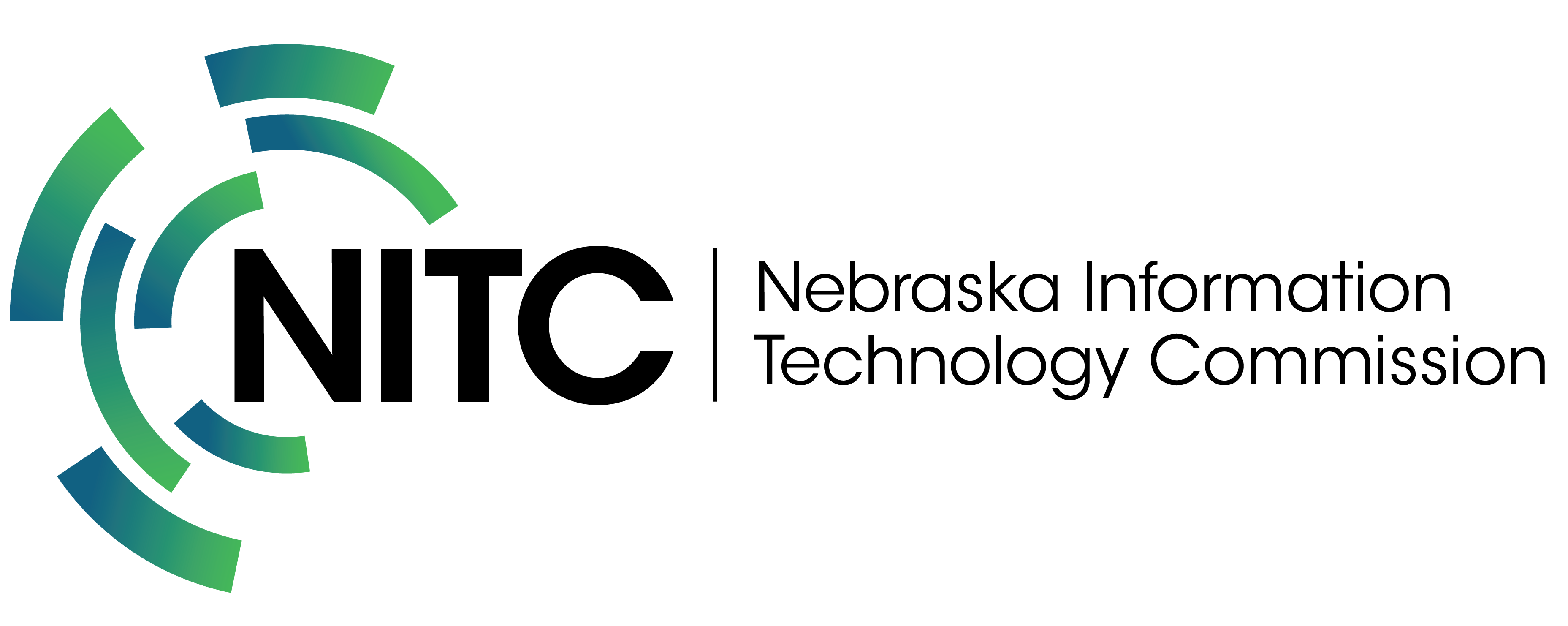INFORMATION RESOURCES CABINET
Minutes of the November 18, 1997 Meeting
IRC Members in Attendance:
Berri Balka, Revenue
Doug Christensen, Education
Dorest Harvey, GDE Systems
Carroll Krause, State Colleges
Bob Luth, Administrative Services
David Powers, Coordinating Commn. For Postsecondary Education
Kim Robak, Lieutenant Governor
Ron Tussing, State Patrol
Tim Kelso, Labor (Butch Lecuona's representative)
Others in Attendance:
Rod Armstrong, State Information Technology Coordinator
Mollie Anderson, DAS-Personnel
Bob Beecham, Education
Dean Bergman, Education
Loralee Bird, State Treasurer's Office
Howard Boardman, Health & Human Services
Brian Covault, Health & Human Services
Tim Erickson, DAS-Intergovernmental Data Services
Sue Dedick, DAS-Personnel
Lyn Heaton, DAS-Budget
Dave Heineman, State Treasurer
Steve Henderson, DAS-Central Data Processing
Keith Larsen, Health & Human Services
Kris Leininger, Lieutenant Governor's Office
William Miller, DAS-Communications
Jon Ogden, Roads
Emmanuel "Oly" Olaes, Health & Human Services
Jim Ohmberger, DAS-Central Data Processing
Ed Perry, Contractor for HR/FM System
Alan Reese, Education
Patty Richard, DAS-Director's Office
Steve Schafer, DAS-Intergovernmental Data Services
Bob Shanahan, Labor
Kevin Smith, DAS-Central Data Processing
Gary Wieman, Legislative Computer Services
IRC Members who could not attend:
Al Abbott, Roads
Al Abramson, Motor Vehicles
Don Leuenberger/Deb Thomas, Health & Human Services
Jim Van Horn, University of Nebraska
Joyce Wrenn, Union Pacific Railroad
An electrical fire in the State Capitol delayed the meeting. The meeting was reconvened in the Executive Building first floor conference room at 2:15 p.m.
Colonel Ron Tussing presented a draft policy and executive order concerning safety issues surrounding the use of cellular phones while operating a motor vehicle. Discussion followed. Lieutenant Governor Kim Robak recommended that the Governor send a letter to all state agencies and boards and commissions outlining this policy, but that an executive order was unnecessary. A copy of the Governor's letter should also be sent to Senator LaVon Crosby. Bob Luth suggested that a letter to state agencies encouraging, rather than enforcing, a policy is the best step to take. Lieutenant Governor Robak will discuss same with Governor Nelson.
Jon Ogden and Tom Conroy, co-chairs of the E-Mail Work Team, presented the team's report, recommendations and conceptual diagram regarding their research on the best strategy to provide e-mail interconnectivity between all agencies using any product from the list of approved products and to provide a "low cost" e-mail solution for small agencies. Discussion followed regarding funding for initial investment, continued operation and software upgrades/replacement software; organizational issues and completion timeline; conceptual diagram for agency links and networking; possible opposition to proposed e-mail products; scheduling and calendaring options; and assistance/education for agencies in selecting an e-mail product.
Dorest Harvey asked where funding fits within the timeline. Ogden and Conroy replied that a funding strategy should be finalized by the end of 1997/early January, 1988, in time for the upcoming legislative session.
Funding is needed for firewall, directory and message switch. Lieutenant Governor Robak asked if OV/VM usage charges could be a funding mechanism. Conroy replied that it would be unfair to OV/VM users, because currently there are several agencies supporting themselves and do not use OV/VM. Thus, no OV/VM charges are exchanged between these agencies and the Department of Administrative Services. Lieutenant Governor Robak recommended that agencies move away from OV/VM.
Other funding options discussed were DAS offering a service for a fee for smaller agencies, upfront general fund support and an annual budgeted fee for agencies. The team proposes that DAS-Central Data Processing provide service at a reduced cost, rather than agencies negotiating separately.
Harvey made motion to adopt E-Mail Work Team's report and recommendations. Colonel Tussing seconded. The motion carried unanimously. Lieutenant Governor Robak will make this recommendation to Governor Nelson and will work with DAS-Central Data Processing on funding. She also insisted that timeline be strictly adhered to.
Lieutenant Governor Robak gave a status report on the Nebraska Technology Coordination Initiative. She explained that on November 19, Governor Nelson will be announcing the formation of the Nebraska Information Technology Commission. She indicated that eight of the nine members had been asked to serve and had accepted. The NITC members are:
one representative of state government Lieutenant Governor Kim Robak (Chair); one representative of higher education Dr. L. Dennis Smith, UNL President; one representative of elementary and Doug Christensen, State Commissioner secondary education Of Education; one representative of Nebraska Gary Adams, Mayor of York communities; five representatives of private businesses or U.S. Senator J. Robert Kerrey organizations who are major users of Dr. Eric Brown, General Manager of information technology KRVN radio in Lexington Gary Kuck, President & CEO of Centurion International in Lincoln ; Joyce Wrenn, Chief Information Officer, Union Pacific Railroad To be filled; Lieutenant Governor Robak also explained that three Councils would be formed under the Commission: Education, Government and Communities.
The first meeting of the NITC will be held in mid-December.
New members of the Information Resources Cabinet will need to be appointed due to the formation of the NITC. Lieutenant Governor Robak also stated that the legislature should be represented in an ex-officio manner.
Steve Schafer, Administrator of the DAS-Intergovernmental Data Services, presented a revised Project Planning Proposal and Information Technology Needs and Preliminary Design Statements. Schafer asked if the IRC believes this Planning Proposal was worth pursuing and if a subcommittee should be formed. Lieutenant Governor Robak believes agencies have not taken into consideration future maintenance costs, but instead only initial costs. The Lieutenant Governor also believes the process needs to be quick. Schafer responded that the speed of the process will depend on the scale of the project. Harvey stated the documents need to be revised to reflect that needs don't have costs, but preliminary designs do. Commissioner Christensen stated this process needs to be done, but time consuming. Howard Boardman asked for clarification on whether this process is meant for new development projects over $100,000, but doesn't apply to upgrades -- this is correct. Powers asked if the $100,000 minimum includes only state funds -- Lieutenant Governor Robak clarified that it includes all funds (state and federal). Group decided that purpose of this document is to provide an avenue for agencies to think through their information technology planning process. The document is meant for only state agencies, but other entities could use as a model.
It was decided that the IRC should adopt a three-step process for reviewing future Century Date Change projects, that the IRC/CIO model should incorporate a formal planning process for all information technology projects, that the focus should be on providing planning assistance not enforcement of guidelines, and that there should be a monitoring/progress process. The group was undecided on which entity should review technology plans, although it was suggested that DAS-CDP or an interagency group (users not technicians) be responsible.
Lieutenant Governor Robak suggested that a task force of users be created to refine this process. The task force should report back to IRC by January. Lieutenant Governor Robak stated that Schafer prepared a great skeleton for this process. She also suggested that the process presented today be optional in the interim and used during the budget process.
Bob Luth, Acting Director of the Department of Administrative Services, reported on the Financial/Human Resources System Study. DAS sent out a RFP to assist with this study. David M. Griffith & Associates, Ltd. ("DMG") was hired. Dave Perry of DMG gave a status report. Perry anticipates presenting DMG's final recommendation on the best business solution for upgrading or replacing DAS' current human resources and financial management information system by early January. Luth explained the timeline: the recommendation would be brought before the Legislature for approval, a RFP would be sent out early summer 1998, and ready for implementation by next biennium.
Mollie Anderson, Director of DAS-Personnel, reported on the draft Information Technology Employee Recruitment and Retention Study. Sue Dedick accompanied her. Anderson explained that Personnel has been looking for solutions to the public sector's problem of recruiting and retaining qualified IT professionals. Anderson asked that the IRC review the document, provide feedback and suggest alternatives/solutions. She also stated that funding would require legislative approval, but that resolution of the classification issue falls under the authority of the Division of Personnel. Carroll Krause stated that the community and state colleges are part of the solution. It was also suggested Anderson talk with Bob Sweeney of AIM Institute for solutions.
Rod Armstrong reported on interactive transactions. Currently, the only interactive transaction within state government is electronic funds transfers. However, several agencies are working towards same; security is concern. Lieutenant Governor Robak reminded IRC that the Governor had challenged the code agency directors last year, to make every possible state government transaction interactive with the public by the year 2000, and that there was only two years remaining to meet that challenge. Lieutenant Governor Robak recommended that a reminder concerning Governor's challenge be sent out again, along with an offer of assistance. Lieutenant Governor Robak would like a report back by mid '98, on how far agencies have come with interactive transactions.
Rod Armstrong also reported on cost data. He stated that of a $2.3 billion operating budget for state government, $130 million, or about 3 percent, was spent on information technology. Harvey believed it should be considerably higher. Lieutenant Governor Robak stated that state government has been unwilling to invest in technology, when so much money is going out to local governments.
The Standards report was held for the next IRC meeting. Lieutenant Governor Robak anticipates the next "reconstituted" IRC meeting to be held in early January. A meeting notice will be sent.
Meeting was adjourned.

